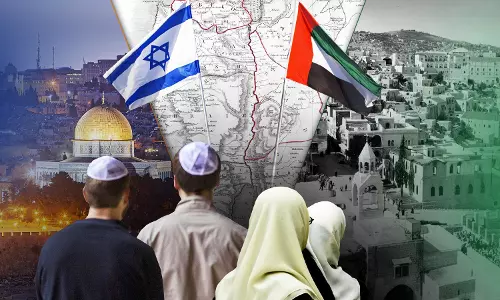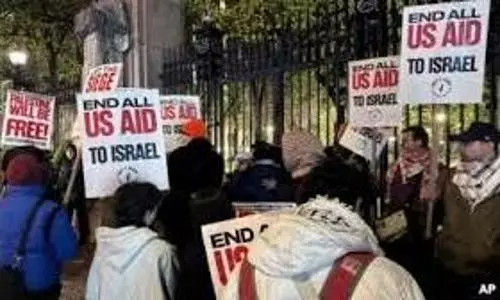
Russia reluctant to believe Islamic State’s role in Moscow attack
text_fieldsIn the aftermath of the devastating attack on a Moscow concert hall, Russia continues to cast doubt on the motive behind the Islamic State's attack, with Russian Foreign Ministry spokeswoman Maria Zakharova expressing doubts about the group's capacity to execute such a sophisticated assault.
Zakharova reiterated Moscow's assertions, albeit without providing evidence, suggesting Ukrainian involvement in the deadly incident, which claimed the lives of at least 143 people, making it the deadliest attack Russia has faced in two decades.
While ISIS claimed responsibility for the massacre, alleging it was carried out by its Afghan branch, Islamic State Khorasan, Ukrainian authorities vehemently denied any connection to the attack. The United States, however, claimed to possess intelligence implicating ISIS in the assault.
Russian President Vladimir Putin weighed in on the situation, alleging a potential link between the attack and Ukraine, insinuating that Kyiv might have played a role. He suggested that Ukrainian forces may have facilitated the escape of the assailants across the border. Belarusian leader Alexander Lukashenko added another layer to the narrative, stating that the gunmen initially attempted to enter Belarus but diverted towards Ukraine after encountering sealed borders.
The director of Russia's FSB security agency went further, implicating Ukraine, along with the United States and Britain, in orchestrating the attack. British Foreign Secretary David Cameron swiftly dismissed these claims as "utter nonsense" via social media.
Meanwhile, Kyrylo Budanov, the head of Ukraine's Main Intelligence Directorate, alleged that Russian authorities had prior knowledge of a potential attack since mid-February. Budanov suggested that Russia may have chosen to remain silent either due to underestimating the threat or as part of a strategy to shift blame onto Ukraine and justify internal dismissals.
Amidst the finger-pointing and geopolitical tensions, a U.S. official revealed that Washington had issued warnings to Moscow in the weeks leading up to the attack, highlighting concerns over the possibility of such an incident.
As the investigation into the Moscow concert hall attack continues, the conflicting narratives underscore the complex dynamics at play in the region. The tragedy has reignited longstanding tensions between Russia and Ukraine, with both sides engaging in a war of words while the families of the victims mourn their loss and demand answers.
























